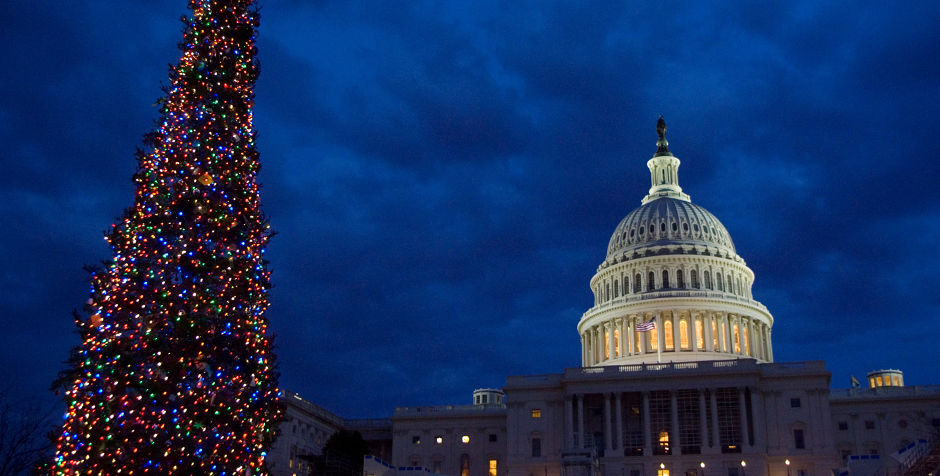What’s Constitutional at Christmas?
During the Christmas season, we get many questions from concerned citizens about what Christmas activities are constitutionally permissible. Therefore, we want to take a moment to explain the constitutionality of various issues that may arise during the Christmas season.
We often receive questions about whether the government may display a nativity scene or other religious symbol on public property. The Supreme Court has directly addressed this issue in Lynch v. Donnelly, 492 U.S. 573 (1989). In Lynch, theCourt explained that as long as the nativity scene is part of a larger holiday display (i.e., among secular symbols like Santa Claus, reindeer, snowmen, etc.) the display is constitutional. Additionally, Christmas trees are not considered religious, so displaying a tree does not violate the Constitution. To explain this principle, the Court in County of Allegheny v. ACLU stated:
Numerous Americans place Christmas trees in their homes without subscribing to Christian religious beliefs, and when the city’s tree stands alone in front of the City-County Building, it is not considered an endorsement of Christian faith.
492 U.S. at 616–17.
Another common category of questions comes from students and parents concerning the proper way for students to express their faith during the holidays. In particular, we often receive questions about singing Christmas carols during holiday programs in public schools. Importantly, several courts have held that students may sing Christmas carols—even though they have religious content—as long as these activities further students’ education of our religious heritage.
Not only can students participate in Christmas programs, but students may also be taught about the Biblical origins of Christmas in public school. According to the Supreme Court in Stone v. Graham, the “Bible may constitutionally be used in an appropriate study of history, civilization, ethics, comparative religion, or the like.” 449 U.S. 39, 42 (1980). Additionally, students are allowed to discuss the birth of Jesus and other religious topics during non-instructional time, and may write about these topics in their assignments.
Finally, we receive questions from employers regarding what they can and cannot do in the workplace during the holidays. Private businesses are allowed to ask that their employees say “Merry Christmas” and request that they wear Christmas-themed clothing. Private employers may also put up religious Christmas decorations at their place of business. As long as employers are reasonably accommodating of any objecting employee’s religious beliefs, they may engage in these activities.
We hope that this has clarified some of the constitutional issues that may arise during the holiday season. To learn more about your constitutional rights this Christmas season, read our extended legal memos addressing many other similar questions:

